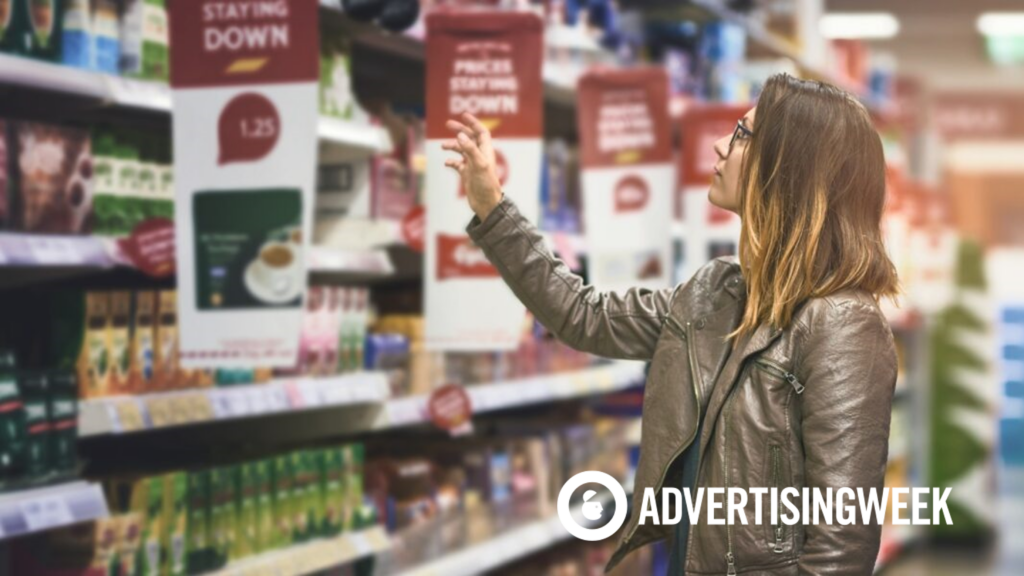Shoppers’ priorities have shifted, and retail brands must keep up.

By James Willoughby at Sense
The retail landscape is not what it was before the Covid-19 pandemic. Changes in shopper behaviour mean that traditional ways of advertising and connecting with consumers are no longer as reliably effective. People may now choose convenience and affordability over brand loyalty, as habits formed in lockdown continue to influence how we shop and live. Couple that with the cost-of-living crisis, and you have a situation that retail brands must acknowledge and respond to. Shopper marketing for retail brands needs to considered from a new perspective.
Understanding the retail landscape
We recently launched our retail marketing division to guide brands through this new landscape and help them succeed. It’s important for retail brands to understand the needs of the modern consumer, rather than recycling outdated shopper marketing methods that might have been reliable in the past, but aren’t as applicable in the hyper-online, fast-moving and unpredictable present.
As Kantar told the BBC, people are visiting shops less now than they did before the pandemic. Their insights show that a monthly ‘big shop’ for essentials is common, with fewer visits throughout the month, as people continue to work from home.
Discounts are big business, too. As inflation rose, shoppers looked for deals, and the names synonymous with cheap groceries, Aldi and Lidl, raced past their established competitors in the popularity stakes, seeing a 23% year-on-year increase in sales. Other retailers offer price-match guarantees to keep prices low, and have been expanding own-brand offerings.
Then there’s the internet. Nearly 12% of all grocery shopping in the UK is done online – up from a pre-pandemic 8%, but down from a mid-lockdown peak of 15.4%. Older people might have gone back to physical shopping, says analyst Fraser McKevitt, but younger shoppers go online first.
So, with fewer visits to the shops, a squeeze in finances, and online shopping increasingly becoming the first storefront many will see, a fresh and responsive approach is needed.
Retail brands need to adapt
Retail brands must adapt to the current cost-of-living crisis, and employ a more sales-oriented approach. Being on TV for six months may not significantly boost brand recognition as it would once have done – shoppers want instant and compelling reasons to buy.
From a shopper marketing point of view, retail brands need to realise that time-poor, stressed shoppers may struggle to decipher clever advertising messages. They want a simple and instantly recognisable USP, whether that’s how the product will taste great, make their life easier, aid in their health goals or appeal to their kids. Shopper marketing has evolved, and the clever, emotional approach played out over TV ads might work for certain brands at Christmas, but the rest of the year demands an evolved, simplified approach.
Shoppers are faced with endless choices so brands need to make an impact quickly. If customers are having to decipher a brand’s messaging due to it not being obvious, people will move on to look for a product that is.
Successful brands are the ones that recognise time-poor and attention-deficient shoppers require simple, functional language. Sainsbury’s 1 x curry + 1 x beer meal deal is a great example of simple messaging working well, and Colgate’s ‘rinse, brush, replace’ tells shoppers exactly what they need to do.
The golden rules of shopper marketing
Brands should test new campaign ideas against these golden rules to see if they fulfil the need to be snappy, obvious, and undemanding.
Is it simple?
Communication should use few words, and the words should be short and “every day” in their nature. Speak to people in the way they’d speak to family or friends.Is it clear?
Communication should be easy to process. It tells a shopper what a product is, what it does, why it’s good, and how it’s better than other options.Is it effective?
Communication should frame choices effectively to make a brand the most obvious choice for shoppers.
Standing out in the crowd
With groceries, it’s inevitable that not every new product will be reinventing the wheel. Orange juice is always orange juice, after all. But even without a new USP, brands need to understand how to market the product effectively. A barrier many retail brands struggle to overcome is developing the messaging they direct at shoppers. In a saturated market, they must understand the trigger words and compelling language that makes someone buy their offering over another.
Ultimately, brands and retailers need to move away from an ‘if it ain’t broke, don’t fix it’ mentality when it comes to their marketing. The old ways – OOH campaigns or TV ads relying on an emotion-driven narrative – may not be broken, as such, but when we recognise that shoppers’ needs and finances aren’t what they were even five years ago, we can see that their priorities are different. Working from this understanding is the first step to succeeding in this challenging, modern market.
London
5th Floor Century House
100 Oxford Street
London
W1D 1LN
New York
243 E 14th St,
#2, New York,
NY, 10003
Downloads
Discover our latest guides to help brighten your brand experience strategy or amplify your shopper marketing moves. Get them here at The Futures Lab.
Making brands
brighter
London
5th Floor Century House
100 Oxford Street
London
W1D 1LN
New York
243 E 14th
#2 C/O SQ
New York
NY 10003
Downloads
Discover our latest guides to help brighten your brand experience strategy here at The Future Lab
Connect with us
